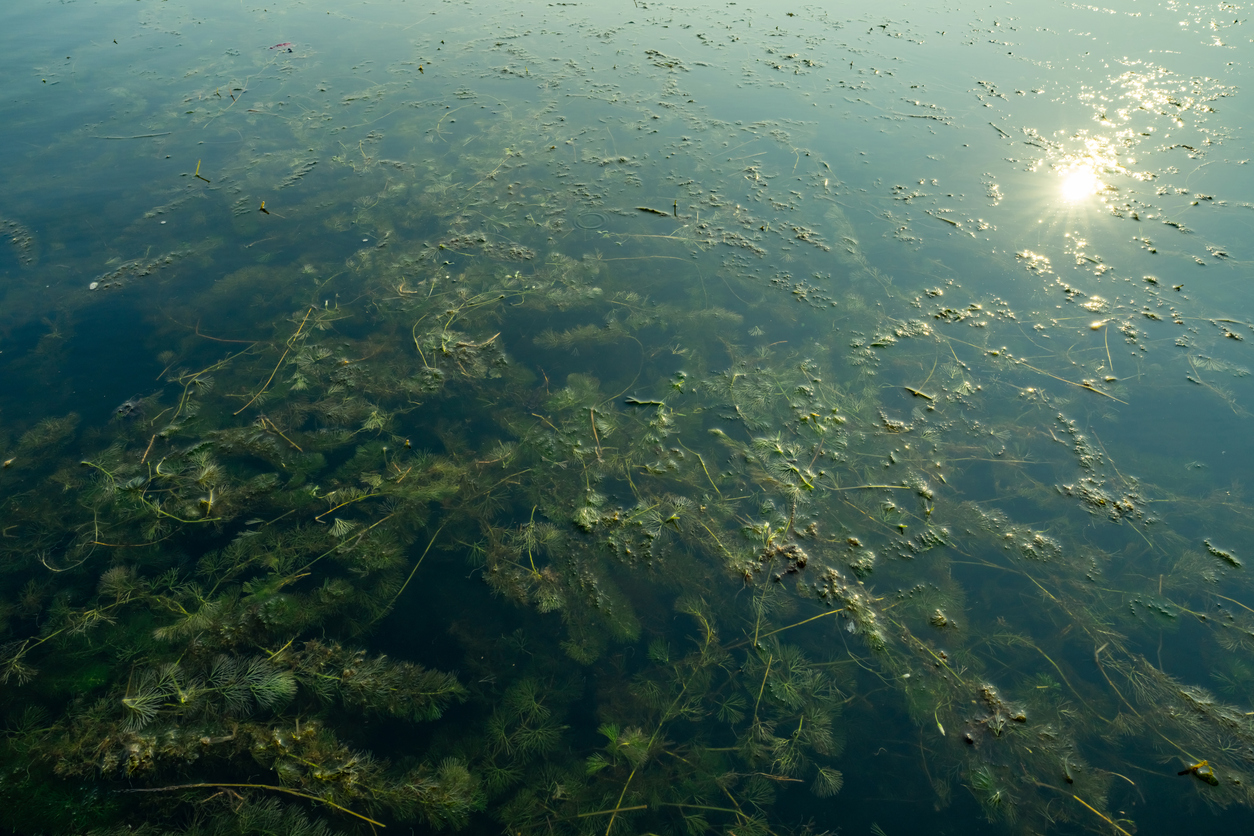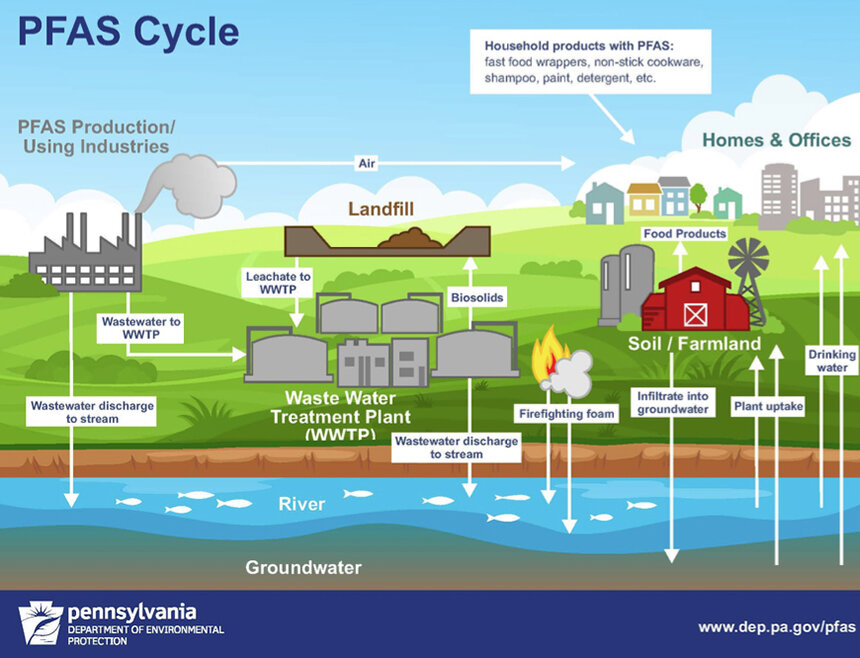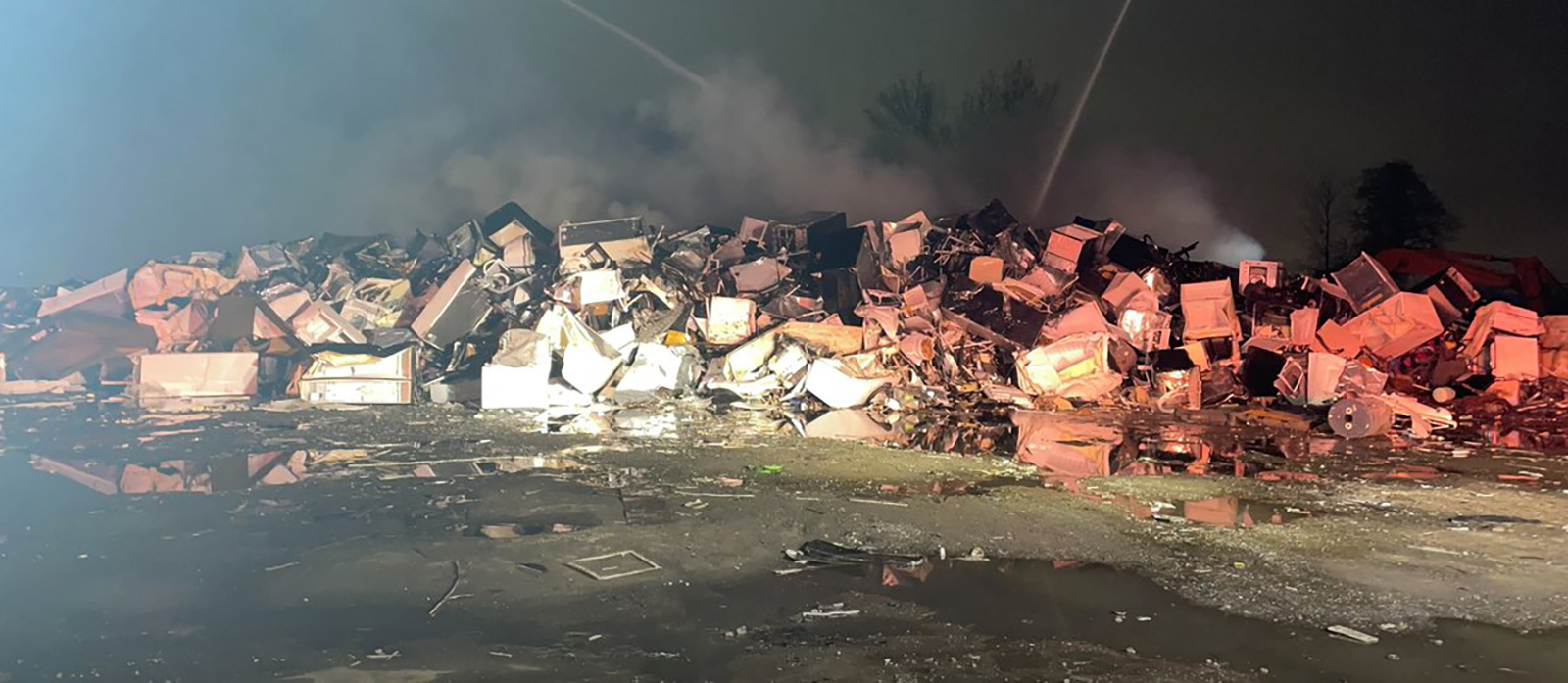DEM Invokes Clean Water Act Clause to Force Providence Properties to Clean Up Mashapaug Pond Watershed
February 1, 2024
PROVIDENCE — State environmental regulators announced Wednesday they are going to use an obscure clause in the Clean Water Act to force commercial and industrial properties in the Mashapaug Pond watershed into compliance with the state’s stormwater management regulations.
The director of the Rhode Island Department of Environmental Management, Terry Gray, told reporters his department had identified 70 properties around Mashapaug, Spectacle, and Tongue ponds whose lack of runoff infrastructure was debilitating the environmental health of the watershed. The properties, all of them business or industrial sites, are technically exempt from state stormwater requirements since they were grandfathered in at the time the regulations were written.
To force the properties into compliance, Gray said DEM would invoke “residual designation authority,” a catchall authority buried deep within the federal Clean Water Act that enable states to clean up all nonpoint sources of pollution and stormwater runoff.
State regulators aren’t focusing on chemicals or other discharges from the properties that are polluting the Mashapaug Pond watershed, but instead the lack of stormwater management actions, such as cleaning catch basins, implementing green infrastructure, and other low-cost actions to retain stormwater before it enters state waterways. The actual sources of pollution in the watershed, said Gray, were more routine: leaf and plant debris; fertilizers; and rock salt.
“The problem we’re focused on is phosphorus,” Gray said. “Phosphorus is a central building block of life, but we’re focusing on having too much of a good thing.”
According to Gray, the reason DEM is pursuing the strategy now is that the department has enough resources, after decades of stagnation and budget cuts, to draw up a new program on negligent property owners.
Under the new permitting program, property owners would be expected to meet certain stormwater management objectives, but Gray indicated the department’s intent would be a low-cost, low-impact program. Any property owners who continue to be negligent once the program rolls out would be subject to fines.
“There is a cost to this program,” Gray said. “That’s part of the decision-making process, but it’s worth it.”
Overloading freshwater rivers, ponds, and streams with nutrients such as phosphorus is damaging Rhode Island’s waterbodies. Excess phosphorus and nitrogen can lead to harmful algal blooms, such as cyanobacteria, which is toxic to the touch for humans and pets. DEM data show that the department, in conjunction with the state Department of Health, have imposed 20 no-contact orders on the three ponds in the watershed since 2011, the first year state regulators began tracking such events.
The problem isn’t just located in the Mashapaug Pond watershed. Rhode Island has seen a stark increase in cyanobacteria blooms over the past decade, often because DEM lacks the resources to properly test the water for algal blooms and enforce runoff regulations. Statewide, DEM and DOH have issued more than 160 no-contact/public health advisories for algal blooms on all waterways statewide.
The song — whether it’s in the Mashapaug watershed, or Newport’s Almy Pond, or Warwick’s Warwick Pond — remains the same: overdevelopment and lack of stormwater controls results in polluted ponds and streams.
The state’s Jan. 31 announcement was a joint affair between DEM and Attorney General Peter Neronha. Neronha told reporters his office had filed a petition with DEM to request it invoke the residual designation powers outlined in the Clean Water Act to bring the 70 properties into compliance.
Neronha noted a similar petition had been filed by the Rhode Island branch of the Conservation Law Foundation in 2018 and indicated that a similar move had been undertaken by the Environmental Protection Agency in three watersheds around Greater Boston. Neronha characterized the action as a “relatively new use of the Clean Water Act [powers] by DEM to control stormwater runoff.”
“The fact is,” he said, “we are still seeing beach closures, toxic algal blooms around Narragansett Bay including here at the Mashapaug watershed in Providence.”
Mashapaug and Spectacle ponds have been listed on the state’s impaired waters list since 1998, and the area surrounding the watershed has been identified by DEM as an environmental justice focus area.
DEM said it expects to begin rolling out the new stormwater management permit for all 70 properties by the end of spring.




About time. UPP pointed a light at this more than a decade ago. Easy to get a permit to pollute, hard to repair the world.
About time something is done about this ongoing problem. Roger Williams park is a beautiful place except for the water that it contains.
Hopefully enforcement will have an impact on the water quality!